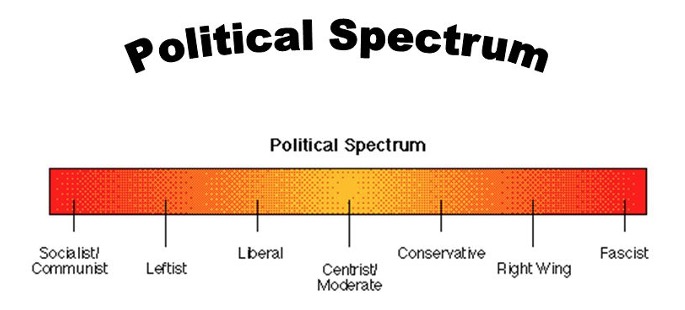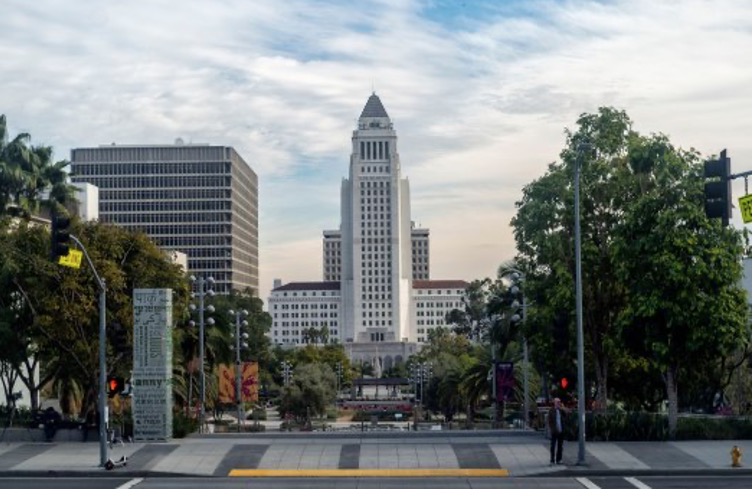CommentsPLANNING WATCH - If you are still a newspaper reader, you probably know that the Los Angeles Times has twice weighed in on L. A.’s primary election results, concluding that candidates from what they call the left, the far left, or progressives are changing politics in Los Angeles.
Since I have already written about fauxgressives (i.e., economic conservatives who self-label themselves as “progressives” to obfuscate their free-market proposals and to attract politically illiterate supporters), I want to determine where these “far left” candidates stand on three planning issues: housing, climate, and the planning process. Are they fauxgressives who have bamboozled the fourth estate, or do they hold genuine progressive positions that served them well in the recent primary election?

Since political labels are slippery, especially in the mainstream media, let me offer some definitions.
- Conservative political actors support unfettered market forces to control private and some public sector investments. This position is also called neo-liberalism, free-market, supply-side, and trickle-down economics. Its political program focuses on the deregulation of government regulations and the privatization of public services and public programs.
- Liberal political actors support government regulations, such as zoning, and public programs that offset the fallout from free-market economics (e.g., public housing for the homeless). In the U.S. domestic liberalism appeared during FDR’s New Deal in the 1930s and President Lyndon Johnson’s (1963-1968) Great Society, Some Great Society programs survived into the first term of President Richard Nixon (1968-1972), who Noam Chomsky called this country’s last liberal president.
- Left is a big tent that includes progressives, left-liberals, and democratic socialists. These political actors, like Senator Bernie Sanders and Congressperson Alexandra Ocasio-Cortez, stick to their domestic liberal political positions even when both major US political parties adhere to free-market economics.
- Far-left refers to traditional socialists and communists. In general, socialists favor employee control of workplaces, like co-ops, or government ownership of large companies and utilities (e.g., LADWP). Communists, in general, call for the elimination of private property, profit, and wages, and like some socialists, also support employee control of workplaces and work products.
- New left refers to the anarchist, socialist, and communist groups that emerged worldwide in the 1960s from older far-left
Regarding LA’s recent primary elections, the Times reported on the following candidates, but wrote little about their positions on three planning issues: low income housing, climate change, and the planning process.
- Eunisses Hernandez, a police abolitionist endorsed by DSA-LA, defeated City Hall incumbent, Gil Cedillo, in Council District 1.
- Hugo Soto-Martinez was the top vote getter in Council District 4. The incumbent, Mitch O’Farrel, finished second, and the two will face off in the November 2022 election.
- Kenneth Mejia, a CPA and former member of the Green Party, had twice as many votes as runner-up Councilmember Paul Koretz in the primary election for City Controller. Their final showdown takes place in November.
So, what are the actual positions of these three “left/far left/new left/radical progressive” candidates? Do they threaten City Hall’s pay-to-play institutional culture? Has the press spun several community and labor organizers as a new red menace?

Eunisses Hernandez will be the next Councilmember for Council District 1.
Regarding the housing crisis, her platform calls for just-cause evictions, right-to-counsel for tenants during eviction proceedings, enforcement of LA’s Tenant Anti-Harassment Ordinance, municipal support for housing organizers and Community Land Trusts, and redirection of city and state assets and funds to affordable and social housing.
Regarding climate change, Hernandez’s only program was the decarbonization of LA’s buildings. While this is welcome, other obvious low hanging fruit, such as tree planting and improved transit, sidewalks, and bikeways, are not mentioned.
Regarding the planning process, her platform calls for transparency and accountability in discretionary actions. Her platform is silent on other planning topics, such as a timely, legally required, and closely monitored General Plan, especially the recently adopted Housing Element and a missing State-mandated Environmental Justice Element.
Conclusion. Her heart is in the right place, but there is not a word about restoring the Community Redevelopment Agency’s and the Federal Department of Housing and Urban Development’s public housing programs. Likewise, she mentions that many of her constituents are low income, but does not call for raising wages, supporting union organizing, or prosecuting wage theft.
Hugo Soto-Martinez has an excellent chance of defeating incumbent Mitch O’Farrel. Soto-Martinez has a compelling personal biography but sticks to generalities or is silent on planning issues.
Regarding the housing crisis, he calls for ending sweeps that push people from block to block; building neighborhood drop-in centers; converting vacant/underused hotels, motels, retail spaces, office buildings into housing; and building social housing (a European term for public housing). How will these ideas be implemented? Who knows?
Regarding the climate crisis, he wants to cap old oil wells, create 10,000 climate jobs, retrofit existing buildings for energy efficiency, save rainwater, clean up aquifers, and jump start LA’s Green New Deal. Unfortunately Mayor Garcetti’s Green New Deal is only an executive document. It will disappear the moment he leaves office.
Regarding the planning process, I could not find anything on his campaign website.
Conclusion: If he wins the election for Council District 4, he will face a daunting learning curve because he would represent Hollywood, a hub of knowledgeable community activists who expect elected officials and their staff to know as much as they do.
Kenneth Meija is harder to pigeonhole because he will not hold a legislative position if he becomes LA’s next City Controller.
Regarding the housing crisis, he supports the nationwide Homes Guarantee. If Congress adopts its programs, which is not likely, it would establish a Federal protection program for tenants, a coast-to-coast database of landlords and evictions, and a national rent control law. As for local housing ordinances and programs, his platform is silent, even though the current City Controller, Ron Galperin, has issued reports on the cost of homeless housing in Los Angeles and housing code enforcement.
Regarding the climate crisis, Meija supports the Green New Deal, but Congress has not adopted it, and LA’s Green New Deal is a short-lived executive document, not a permanent, adopted, monitored, and funded plan.
Regarding the planning process, Mr. Meija’s platform is also silent.
Conclusion: If he wins, I hope he will use his office for extensive reporting and evaluation of municipal programs regarding the housing crisis, the climate crisis, and the planning process. The ball will be in his court.
Last words: The “left/far left/progressive/radical progressive” primary candidates clearly see a few trees but miss the forest. None of them call for the restoration of traditional liberal CRA and HUD public housing programs, paring back the new Housing Element's supply-side up-zoning schemes, or raising wage levels to reduce the main cause of the housing crisis: poverty. As for the larger question of planning and monitoring this country’s second largest city, the candidates are so far mum. Likewise, the climate crisis is nearing the point of no return, and it should not remain an after-thought.
Instead the candidates offer engaging personal biographies, but they remain beginners when it comes to homelessness, land use, climate change, and the planning process. I wish them luck because they will be forced to learn a great deal in a short time to politically impact City Hall, especially in battling its entrenched institutional culture.
P.S. If I misrepresented any candidates’ positions, I invite readers to post or send me corrections.
(Dick Platkin is a former Los Angeles city planner who reports on local planning issues for CityWatchLA. He serves on the boards of United Neighborhoods for Los Angeles (UN4LA) and the Greater Fairfax Residents Association. Previous Planning Watch columns are available at the CityWatchLA archives. Please send comments and corrections to [email protected].)
















